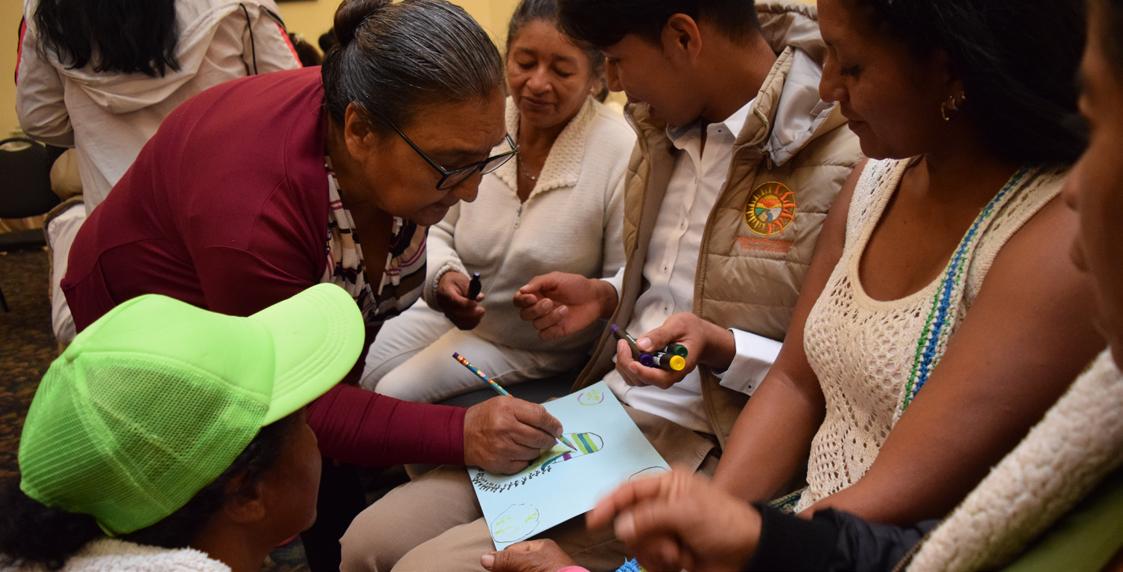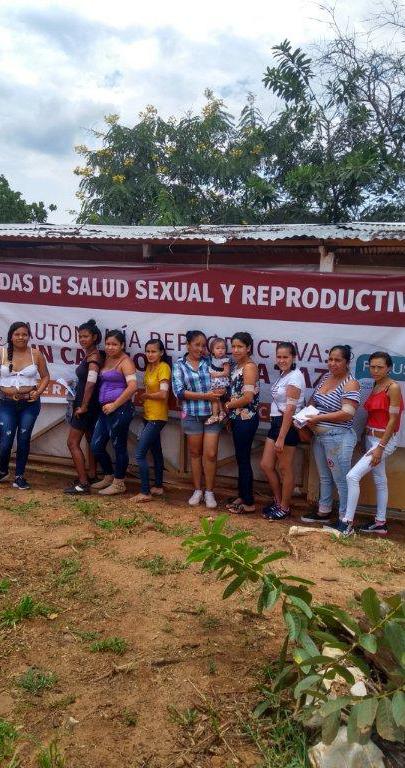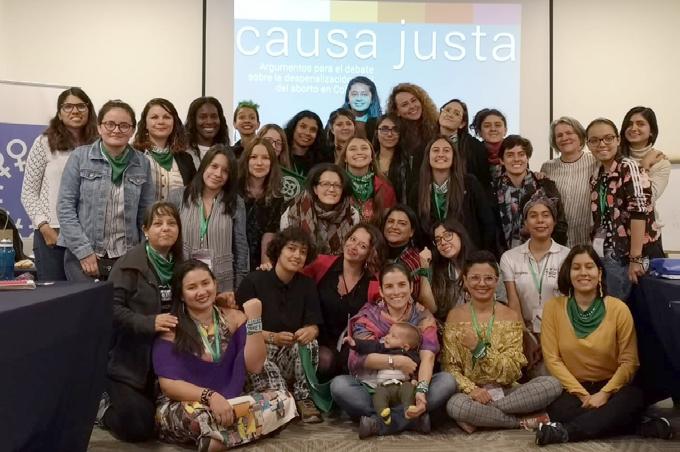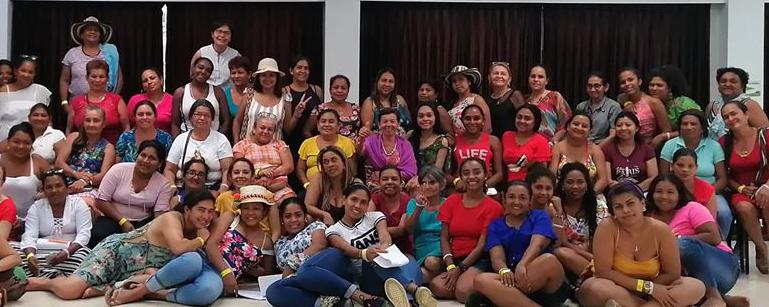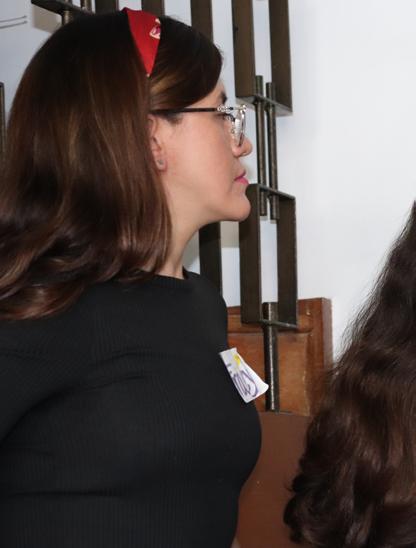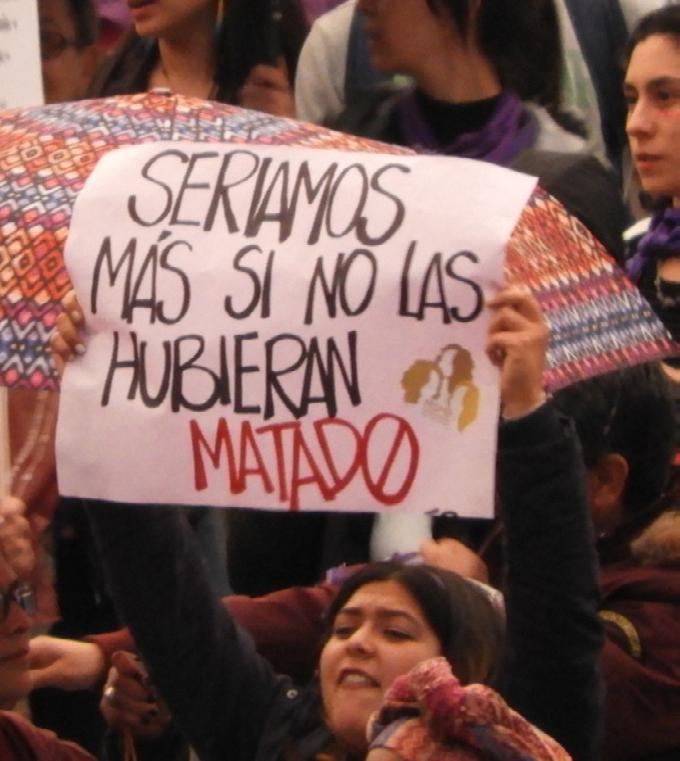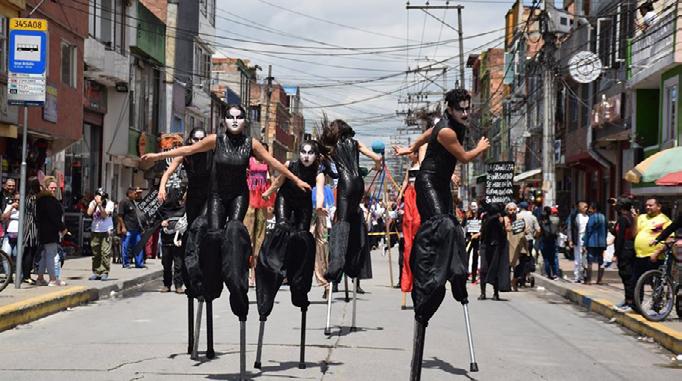
3 minute read
An Agreement on the Search for Truth in the Conflict
TEXT: COLOMBIA DIVERSA
ong and dance: the only way that Afro-Colombian communities could say what they could not scream during the times of slavery. Today, music, the thing that gave their ancestors strength, is still an avenue that lets singers from Tumaco raise their voices for the disappeared and for the relatives who are no longer present. These women know the fractures and scars the conflict has left on mothers, families and entire populations. That is why they created this group, so they could sing songs that allow them to try to heal from the pain of war. These are the women who have made themselves heard by singing at many of the agreement ceremonies between the State and civil society. They did so again in September of this year when they sang at the signing of an agreement between Colombia Diversa and the Truth Commission. All of this happened in the midst of insecurity caused by the announcement that Iván Márquez, Jesús Santrich, and alias El Paisa where beginning “a new phase of armed combat.” S PHOTO : Colombia Diversa.
“At this moment, the signing of these agreements is very important. It is not a secret that this is a very difficult moment politically in relation to the Peace Agreement and the institutions that were created as a result of the accord. What motivates and strengthens us is that society is also
working for this process, a process that in midst of all the difficulties has achieved important things.” These were the words of commissioner Alejandra Miller, who underscored the importance of cooperation with civil society organizations as a vital asset in the search for truth. She argued that, in this way, the Commission can reach places and people they otherwise would not have been able to, due to budget or time constraints.
Behind the signing of this agreement is FOKUS, an entity that supports the work of organizations like Colombia Diversa who are at the center of projects related to the armed conflict and, in this case, projects focused on the LGBT community who has suffered from the violence for more than half a century. This support has been the foundation that has allowed the voices of lesbian, gay, bisexual, and trans victims not to be silenced. It has also been important in order to build a bridge of understanding so that society can learn about the Commission’s work.
“The cooperation between Colombia Diversa and the Commission represents a window of opportunity for the incorporation of truths into the official history, [truths] that for a long time have been considered uncomfortable. An example of one such truth is that, in the framework of Marxist-inspired revolutionary war, the guerrillas persecuted LGBT people. Apparently, they were not part of their vision in the construction of a new society. They built on existing prejudice against this community and created forms of control and legitimacy. This legitimacy is another of the uncomfortable truths, that in many cases it was the communities and families who called for this kind of violence,” expressed Marcela Sánchez, director of Colombia Diversa. It is not a coincidence that the singers were present during the signing of this agreement, nor is it a coincidence that they were singing “I have the right, I have the right to “This support has been the foundation that has allowed the voices of lesbian, gay, bisexual, and trans victims not to be silenced.” the truth.” In the midst of what simply appeared to be the signing of a document, there was also a strong presence of hope for truth, hope that with the Peace Agreement the structures of domination that have fused and overlapped with the war can be deconstructed. FM
Signing of the agreement between the Truth Commission and Colombia Diversa



